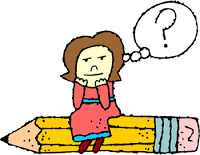Q & A
 Considering the following passage, would YOU state that the format is grammatically correct? This is verbatim from a published title of a British author and is representative of an issue I found throughout the book. Admittedly self-pub.
Considering the following passage, would YOU state that the format is grammatically correct? This is verbatim from a published title of a British author and is representative of an issue I found throughout the book. Admittedly self-pub."I'm sorry," His gruff voice echoed in the small space. "I shouldn't have done that,"
Is there truly a difference in quotation construction between British and 'American' English? To me, the quote should have been written:
"I'm sorry," his gruff voice echoed in the small space. "I shouldn't have done that."
There are differences in everything between British and "American" English. Including quotation construction, but those differences involve whether the punctuation mark (comma or period) goes inside the quotation marks or outside them. Also, in Britain single quotation marks are commonly (but not always) used around quotes, rather than double. You apparently are British, as you used single quotation marks around "American," whereas an American would have used double quotation marks.
Sentences end with periods. "I shouldn't have done that" needs a period, not a comma. But it would not be wrong for Brits to use single quotes and put the period (full stop) outside the quotation marks: 'I shouldn't have done that'.
The other problematic area depends on whether "His gruff voice" starts a new sentence or is a dialogue tag. You can't argue that the comma after "sorry," proves it's not a new sentence, because the author shows in the last sentence that he uses commas when he means periods. If "I'm sorry" is the complete sentence, it should have a period. If it isn't, "His" should not be capitalized.
To me it seems more likely that we should keep the capital H and change the comma to a period, because of the word "echoed." ['echoed'.] To be certain, I would need to see the previous sentence. If it's: "I'm sorry," he said, then it makes sense to follow that with "I'm sorry," his voice echoed. If he hasn't already said "I'm sorry," how can his voice echo "I'm sorry"? [Note that even though I'm American, I've put the question mark outside the quotation marks. That's because both British and American publications put the question mark and exclamation mark outside; it's the comma and period that we differ on, and over which we fought the War of 1812.]
With the period after "I'm sorry," he first apologizes and then, in a new sentence His gruff voice echoes: sorry sorry sorry. (We infer the echoing.) This is followed by his saying, "I shouldn't have done that that that." Out of curiosity, what did he do?
The rarity with which men apologize for anything has me thinking this is fantasy. Right?
Published on June 11, 2013 06:35
No comments have been added yet.
Evil Editor's Blog
- Evil Editor's profile
- 6 followers
Evil Editor isn't a Goodreads Author
(yet),
but they
do have a blog,
so here are some recent posts imported from
their feed.



